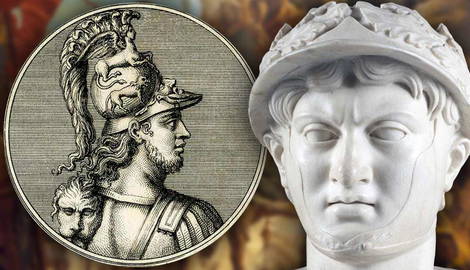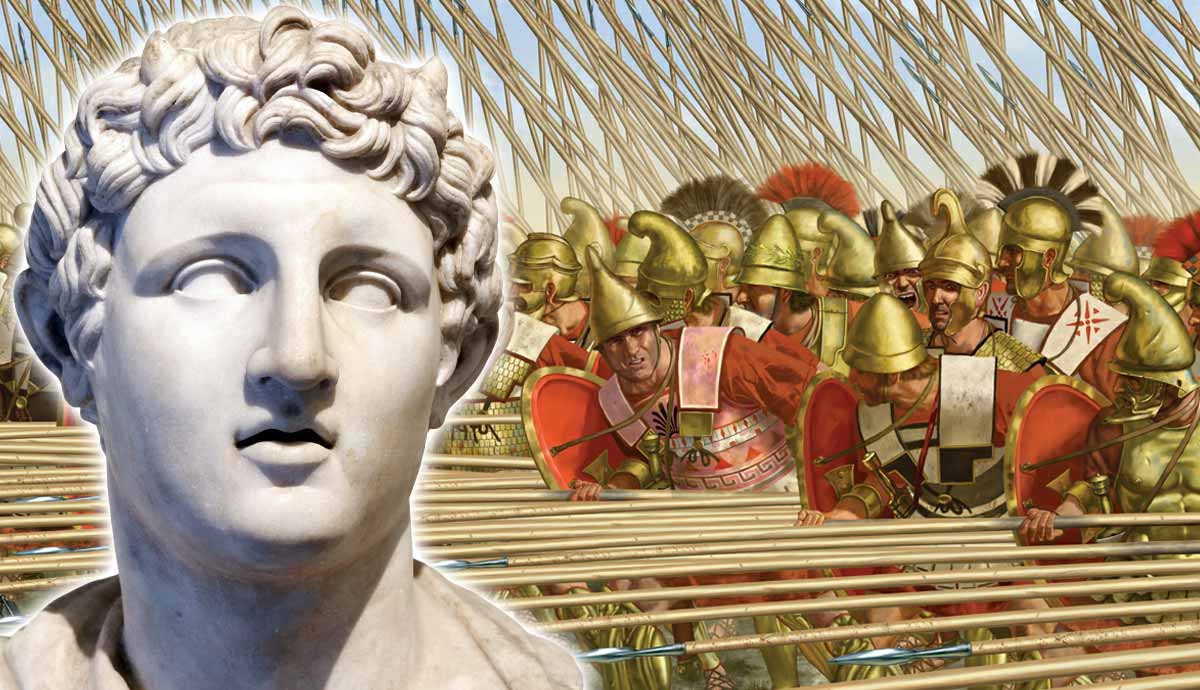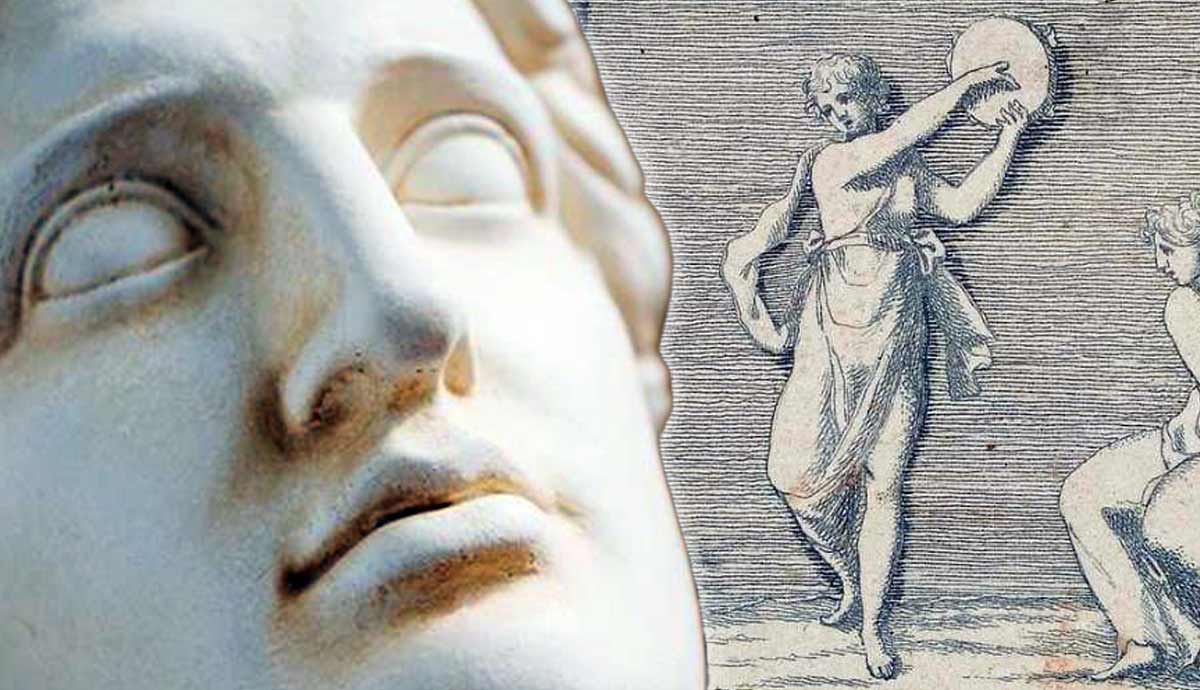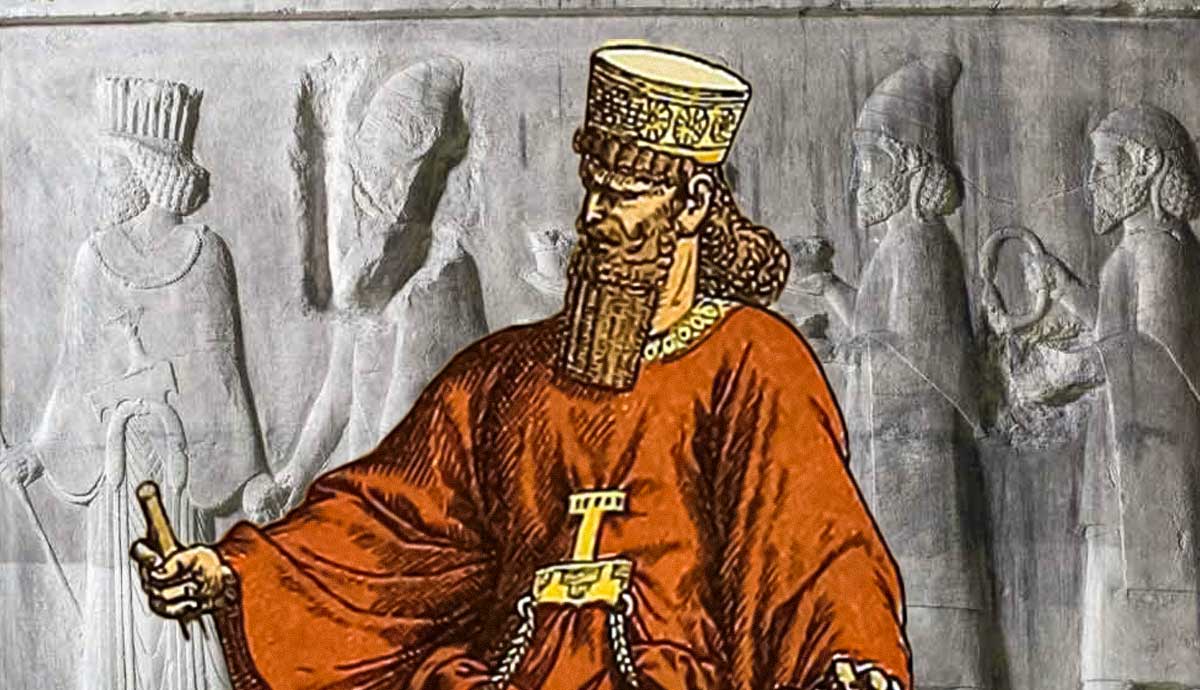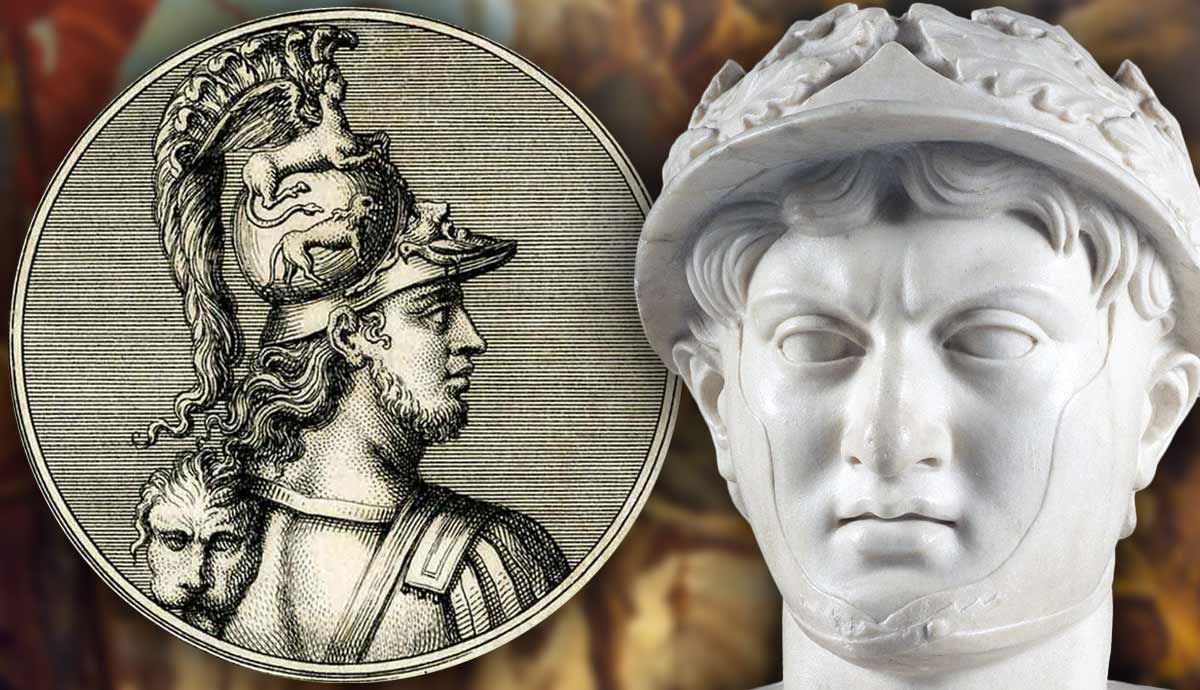
A Pyrrhic victory is defined by the Cambridge dictionary as “a victory that is not worth winning because the winner has lost so much in winning it.” It is the kind of victory no one would celebrate and ultimately leads to defeat. Behind the phrase is Pyrrhus of Epirus (319-272 BCE), a ruler of the northern Greek region of Epirus in the years following the death of Alexander the Great. While the phrase in many ways sums up his life, it originates in the first clash of Greeks and Romans during Pyrrhus’ invasion of Italy. The story of the phrase’s origins reveals much about Pyrrhus, his pursuit of glory, and the era he lived in.
Who Was Pyrrhus?

Pyrrhus was king, and the most famous son, of the northwestern Greek region of Epirus. This mountainous region formed the edges of the Greek world in the Balkans and, much like its eastern neighbor, Macedonia, was often considered a backwater. By the middle of the fourth century BCE, Epirus was very much tied to the rising power of Macedonia. Alexander the Great’s mother Olympias came from Epirus, and this link involved Epirus in the Wars of the Successors that followed Alexander’s death.
Pyrrhus’ life was shaped by this tumultuous age. His early life alternated between periods of rule and exile. Having been thrown out of Epirus, he participated in the wars raging around the Greek world and earned a reputation for courage at the battle of Ipsus in 301 BCE. The fortunes of war brought him to the Ptolemaic court at Alexandria as a hostage. A position he later transformed into Ptolemaic support for a return to power in Epirus in 297 BCE.

Once back in power, the constant changes of fortune did not end. Several times he carried out raids and invasions of Macedonia, often capturing large swathes of land. As an Epirote rather than a Macedonian, Pyrrhus could never hope to hold Macedonia, and each time he was forced out once the tides of war changed. However, as the world started to stabilize into the famous Hellenistic kingdoms of Antigonid Macedonia, Ptolemaic Egypt and Seleucid Syria, around 280 BCE, Pyrrhus had succeeded in turning Epirus into a significant player with a strong well-led army.
By 280 BCE, Pyrrhus had built himself a reputation as a skillful and brave warrior king. Epirus could hold its own against the emerging major powers, but a new opportunity presented itself in the West when the Greek city of Tarentum in Italy called for aid.
The Character of Pyrrhus

Sometimes historical figures have their name or their memory unjustly associated with one moment or incident, but in the case of Pyrrhus, his connection with costly, wasteful victories seems appropriate. Pyrrhus was said to be brave, capable, and not without genuine achievements, but his restlessness and near addiction to war undermined him.
One of our main sources for Pyrrhus is the biography written centuries later by Plutarch. Frustratingly for historians, Plutarch was a biographer and so focused on stories and incidents that illuminate the character of this subject rather than giving a detailed narrative. In the case of Pyrrhus, though, this gives us an insight into his life and the phrase that bears his name.
According to Plutarch’s Pyrrhus, among the kings of his era, Pyrrhus was the one who most resembled Alexander the Great. Other kings imitated Alexander in style and appearance, but Pyrrhus alone was said to match him in battle. War was his sole focus. Not only did he go to war frequently, but he studied and wrote about it as well. Such was his obsession with war that Pyrrhus was said to be unable to bear the boredom of peace. This was a reputation he maintained down the ages, as he was often considered one of the greatest generals of the ancient world.

To illustrate Pyrrhus’ fatal flaw, Plutarch tells the story of a conversation with a wise man on the eve of the invasion of Italy (Plutarch, Pyrrhus, 14.2-8). Stories pitting a king against a philosopher, with the latter often winning, were common in the ancient world and are unlikely to always be true. In this version, Pyrrhus discusses his plans with his advisor Cineas, an orator from Thessaly. Cineas opens the discussion by asking Pyrrhus what he will do once he has conquered Italy. Pyrrhus replies that Sicily would be easy to take after that. Cineas agrees and asks Pyrrhus what would be next, to which the king points out that North Africa and Carthage would naturally follow.
Turning the conversation now to his point, Cineas asks Pyrrhus what he would do once all these conquests were secured. After all those trials, Pyrrhus says he would be at ease and pass the time happily with his friends and companions. The king was said to be disturbed when Cineas pointed out that such an ultimate goal was already well within Pyrrhus’ reach and did not need the difficulties, dangers, and destruction he was embarking on.
Whether the conversation ever happened or not, we can never know, but if it did, it certainly did not stop Pyrrhus. Having spent much of his life fighting across the eastern Mediterranean, he seized the opportunity presented in Italy and headed west in 280 BCE.
War in Italy

Tarentum was one of a number of Greek cities that had spread across southern Italy since the 8th century BCE. At the start of the third century BCE, Tarentum was under pressure from the Romans, who were pushing south.
To aid Tarentum, Pyrrhus brought his growing reputation and 20,000 infantry, 3,000 cavalry and 20 elephants. Shortly after arriving in Tarentum, Pyrrhus got word that the Romans were advancing with a significantly larger army under Valerius Laevinus. In talks, the Romans refused to allow Pyrrhus any role in Italian politics and so the two armies advanced to meet each other in battle near the city of Heraclea.

The battle of Heraclea in 280 BCE saw Pyrrhus’ Epirote army engage a larger Roman force. The battle appears to have been hard fought, with Pyrrhus himself in the thick of the action and targeted by the Romans. For a long time, the momentum in the battle went back and forth until Pyrrhus’ elephants and cavalry finally broke the Romans. Plutarch reports casualty figures ranging from 15-7,000 Romans and 13-4,000 Epirotes.
While we cannot know the true number of dead and wounded, it is clear that both sides suffered heavily. This was unusual in ancient battles, which normally resulted in lopsided casualties as one side lost thousands and the victor just hundreds or even dozens, as most killing happened once one army broke and ran. At Heraclea, it is clear that the battle was, for a long time evenly matched and difficult. Worse still was that Pyrrhus’ casualties were said to have been among his best soldiers. Pyrrhus had his first Pyrrhic victory.
Pyrrhus tried to use his victory to negotiate with the Romans and bring a successful end to the conflict. However, the Romans refused and as other enemies of Rome would find out in the centuries to come, the Roman reaction to losing a battle was often to draw on the manpower resources of Italy and simply come back with new armies. 279 BCE saw Pyrrhus again engage a Roman army. The battle of Asculum was another hard-fought, bloody affair with the two armies closely matched and Pyrrhus reliant on his elephants to make the difference. Roman losses were said to be high, but once again, Pyrrhus may have lost around 3,500 men.

This battle at Asculum is the origin of the Pyrrhic victory phrase. While being congratulated on this second victory over the Romans, Pyrrhus is reported as saying,
“If we are victorious in one more battle with the Romans, we shall be utterly ruined.”
(Plutarch, Pyrrhus, 21.9).
In the two years Pyrrhus had been in Italy, his army had won two major victories. However, these victories came at a great cost, a cost which was extremely damaging for Pyrrhus. Each victory made his Epirote army weaker. Pyrrhus could not easily replace his losses, while the Romans were able to rebuild their armies after each defeat. Despite winning the battles, Pyrrhus was slowly losing the war.
Characteristically Pyrrhus then broke off the war for several years to pursue a new opportunity in Sicily. However, this campaign followed a similar pattern to that in Italy as initial success eventually turned into an unprofitable stalemate followed by retreat.
This threw Pyrrhus back into the war with the Romans. His Italian allies had suffered in his absence in Sicily. In 275 BCE, Pyrrhus advanced to meet a Roman army at Beneventum. When an attempt to take the Romans by surprise with a night attack failed, another closely fought battle ensued. This time the battle was close enough for the Romans to later claim a victory. After years of fighting in Italy and Sicily, Pyrrhus finally withdrew and returned to Epirus after Beneventum. Plutarch states he brought home only 8,500 soldiers and arrived short of money. Three years after the battle of Beneventum, Tarentum fell to the Romans.
The End of Pyrrhus and His Legacy

Despite the ultimate failure of his projects in the West, Pyrrhus did not, perhaps could not, end his wars. 274 BCE brought another invasion of Macedonia, which again saw early victories ultimately squandered. Still, the wars continued and in 272 BCE, Pyrrhus and his army were in the Peloponnese in southern Greece.
He launched an attack on Sparta, which failed due to the heroic resistance shown by the Spartans and cost Pyrrhus the life of his son. The setback at Sparta only sent Pyrrhus in another direction. The city of Argos was divided, and Pyrrhus seized the chance to try and remove the faction supported by his rival, King Antigonus of Macedonia. This adventure at Argos would be Pyrrhus’ last.

His army managed to enter the city at night but got trapped fighting street to street as the armies of Antigonus and the Spartans approached. Pyrrhus was as ever in the thick of this confused fight. In a narrow street, one of the greatest Hellenistic kings found himself confronted with a common Argive soldier, unnamed but said to be the son of a poor woman (Plutarch, Pyrrhus, 34.2). As Pyrrhus turned to overcome this opponent, the soldier’s mother watching from the rooftop of their house hurled a roof tile which caught Pyrrhus on the neck. The king was dazed and fell from his horse. Once on the ground, he was surrounded by enemy soldiers. Pyrrhus recovered just in time to see a soldier of Antigonus cut off his head.
For a man devoted to war, it was perhaps a fitting end. In the ancient world, Pyrrhus was remembered as one of the greatest warriors and generals of any age. As a commander, he certainly had many qualities and was one of the few Hellenistic leaders to defeat the Romans. It is suitable, however, that in the modern world, his name is associated mainly with victories so costly they were in fact defeats. Pyrrhus turned Epirus into a major force in the turbulent decades following the death of Alexander the Great, but this position was ephemeral and did not survive the king’s death at Argos. He conquered numerous territories but just as quickly lost them. His devotion to war earned his name a place in history, but this is a legacy that reveals the often self-defeating nature of such glory.
